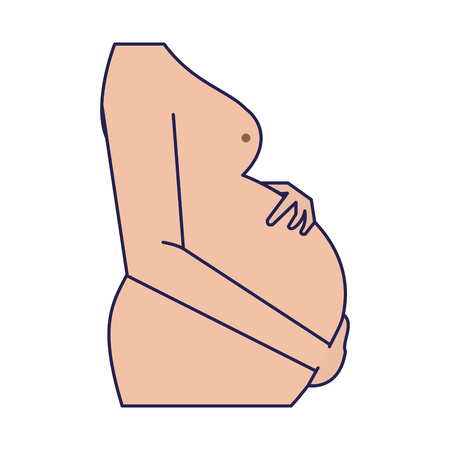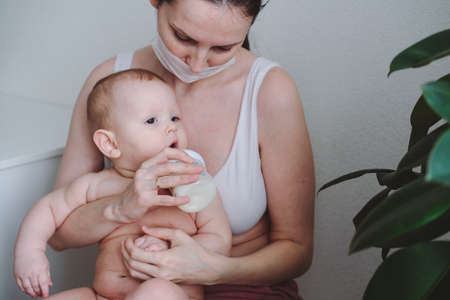Introduction to Breastfeeding Essentials in the UK
Breastfeeding is an important and personal journey for many new parents in the UK, and having the right products can make a world of difference. Here in Britain, breastfeeding is widely supported both by local communities and through comprehensive NHS guidance. The NHS not only provides practical information about how to get started with breastfeeding but also offers support networks and advice on overcoming common challenges. While cultural attitudes towards breastfeeding in public are increasingly positive, there are still varied experiences depending on location and community. Many mothers find reassurance in knowing which breastfeeding products are approved and recommended by UK professionals, as these items align with national safety standards and best practices. Whether you are planning to breastfeed exclusively or combine it with bottle feeding, understanding what essentials are available—and which ones have been tried, tested, and trusted across the UK—can help you feel more confident on your feeding journey.
2. Must-Have Breastfeeding Products for New Mums
As a first-time mum navigating breastfeeding in the UK, I quickly discovered that having the right products on hand makes a world of difference. Here’s an honest list of essential breastfeeding items that are not only practical but also widely approved and recommended by other UK parents. These are easily found in local shops, online retailers, and even NHS recommendations, ensuring you don’t have to look far to get started.
Breastfeeding Essentials Table
| Product | Why It’s Essential | Where to Find |
|---|---|---|
| Nursing Bras | Comfortable and supportive for easy feeding access day or night. | M&S, John Lewis, Boots |
| Breast Pads | Helps absorb leaks and keeps clothes dry, especially in early weeks. | Sainsbury’s, Tesco, Amazon UK |
| Nipple Cream (Lanolin-based) | Soothes sore nipples and aids healing during the first days. | Boots, Superdrug, Mothercare |
| Breast Pump (Manual or Electric) | Allows for flexibility—expressing milk for partners to help with feeds or for relief. | Medela UK, Tommee Tippee, Argos |
| Muslin Cloths | Multipurpose: burping, wiping up spills, or as makeshift covers. | Aldi, Lidl, Next |
| Nursing Pillow | Supports baby at the right height and reduces strain on your arms and back. | Mamas & Papas, John Lewis |
| Bottle Steriliser (if expressing) | Keeps bottles and pump parts hygienic—especially important for expressed milk. | Tesco, Boots, Amazon UK |
Practical Tips from UK Mums
Accessibility matters: Choose products that you can easily replace or restock locally—there’s nothing worse than running out of breast pads at 2am!
NHS recommendations: Many of these essentials are supported by NHS guidance and health visitors across the UK.
Value over gimmicks: Stick to tried-and-tested basics rather than fancy gadgets; most mums agree simple is best when you’re sleep deprived!
A Note on Local Support Groups
If you’re ever unsure about what you need or how to use these products, local breastfeeding support groups (like those run by the NCT or La Leche League) are brilliant resources. They often have examples for you to try before you buy and are full of practical advice from mums who’ve been there before.
Your Starter Kit Sorted!
This honest list should give any new mum in the UK a practical head start—making those first few weeks just a little bit easier. Remember: every family’s journey is unique, so feel free to adapt this kit to what suits you and your baby best.

3. Choosing the Right Breast Pumps: Manual vs. Electric
As a new mum navigating the world of breastfeeding products in the UK, one of the biggest decisions youll face is choosing between a manual and an electric breast pump. Both types are widely available in British shops and online, but each comes with its own set of pros and cons. Drawing from my own experience and tips from local health visitors, here’s what you need to know to make an informed choice.
Manual Breast Pumps: Simplicity and Portability
Manual pumps, such as the Lansinoh Manual Breast Pump or Philips Avent Comfort Manual Pump, are popular among UK mums for their affordability and ease of use. They’re lightweight, quiet, and don’t require batteries or mains power—making them ideal for travel or expressing milk on the go. Many health visitors recommend manual pumps for occasional use or as a backup to an electric pump. However, if you plan to express regularly, you may find manual pumping tiring over time.
Electric Breast Pumps: Efficiency for Regular Use
If you’re returning to work or expressing frequently, electric pumps can be a real game-changer. Brands like Medela Swing Flex, Tomme Tippee Made for Me Electric Pump, and Spectra S1 Plus are highly recommended by both NHS midwives and experienced mums across the UK. Electric pumps tend to be faster and less physically demanding, with adjustable suction settings for comfort. Double electric pumps can save even more time by expressing from both breasts simultaneously—a lifesaver during those busy newborn days!
Considerations When Choosing Your Pump
When deciding between manual and electric, think about your daily routine, budget, and how often you’ll be expressing. For many mums in the UK, a combination approach works best—using an electric pump at home and keeping a manual one handy when out and about. Don’t forget to check whether your chosen pump is easy to clean and compatible with widely available UK bottle brands.
Personal Experience & NHS Recommendations
From my own journey, I found starting with a manual pump helped me get used to expressing without feeling overwhelmed. Later on, an electric pump became essential when I needed to build up a freezer stash before heading back to work. Health visitors often suggest borrowing or hiring pumps (some NHS trusts offer loan schemes) before investing in your own—this can help you discover what suits you best without spending a fortune upfront.
Ultimately, there’s no one-size-fits-all answer. The right breast pump will fit your lifestyle and support your breastfeeding goals—so take your time exploring options approved and recommended by trusted UK sources.
4. Nursing Bras and Comfortable Clothing for British Weather
When it comes to breastfeeding in the UK, one of the best investments you can make is in a good nursing bra and weather-appropriate clothing. The unpredictable British weather—think chilly mornings, sudden showers, and the occasional heatwave—means mums need comfort, flexibility, and easy access for feeds at any time of day.
Choosing the Right Nursing Bra
Nursing bras are essential for both support and convenience. In my early days as a new mum, I quickly realised that not all bras are made equal—especially with the UKs varied climate. Look for bras with:
- Easy one-handed clips for quick access
- Soft, breathable fabrics like cotton or bamboo blends (great for sensitive skin and temperature regulation)
- Good support without uncomfortable underwires, especially during the first few months
- Adjustable straps and band sizes, as your body will change throughout your breastfeeding journey
| Bra Feature | Why Its Important in the UK |
|---|---|
| Breathable Fabric | Keeps you cool on warmer days and avoids irritation from dampness after sudden rain |
| No Underwire | Prevents discomfort during long walks or when layering up in cold weather |
| Adjustable Straps/Band | Accommodates changes as your milk supply settles or when layering clothes during winter |
| Padded Cups/Removable Pads | Adds extra warmth during colder months and absorbs leaks discreetly under jumpers or cardigans |
Dressing for All Seasons: Breastfeeding-Friendly Clothing Tips
The key to staying comfortable while breastfeeding in Britain is layering. My go-to outfit always includes:
- Nursing tops with hidden openings or lift-up panels: These make public feeds discreet and hassle-free.
- Loose jumpers or cardigans: Easy to take off if you get too warm indoors but perfect for chilly winds outside.
- Button-down shirts: Classic British style and super practical for feeding on the go.
- Maternity leggings or high-waisted jeans: Stretchy, comfy, and adaptable as your body changes postpartum.
Quick Guide: Seasonal Breastfeeding Wardrobe Essentials in the UK
| Season | Must-Have Items |
|---|---|
| Spring/Autumn (Mild & Changeable) | Nursing vest tops, layered with light jumpers/cardigans, waterproof jacket for drizzly days |
| Summer (Warm & Sometimes Humid) | Cotton nursing bras/tops, loose shirts, wide-brimmed hat for outdoor feeds |
| Winter (Cold & Damp) | Padded nursing bras, thermal tops with feeding access, thick knit jumpers, scarf for extra coverage |
A Personal Tip:
If you’re heading out, always pack an extra top (milk leaks happen!) and a compact foldable umbrella—because you never know when British rain will surprise you mid-feed!
5. Breastfeeding Support: Pillows, Nipple Creams, and More
Every breastfeeding journey is unique, but one thing most UK mums agree on is the importance of comfort and support. During my own early days of breastfeeding, I found that the right accessories truly made a world of difference. Here’s a look at some essential products—many of which are recommended by both experienced British parents and the NHS—that can help make breastfeeding a more positive experience.
Supportive Breastfeeding Pillows
A good nursing pillow can be a lifesaver, especially during those endless night feeds. British mums often recommend brands like My Brest Friend and Mothercare, which are ergonomically designed to support your back and arms while keeping your baby at the ideal height for feeding. These pillows are widely available in UK stores such as John Lewis and Boots, making them easy to try before you buy.
Nipple Creams for Soothing Relief
Sore nipples are almost a rite of passage for new breastfeeding mums. Thankfully, there are several NHS-approved nipple creams that offer gentle relief. Lansinoh HPA Lanolin Cream is a firm favourite among UK parents for its purity and effectiveness—it’s even safe for babies to ingest, so there’s no need to wipe it off before feeding. Other reputable options include Medela Purelan and Weleda Nipple Balm, both praised for their natural ingredients.
Other Comforting Accessories
Breast pads are another must-have—Lansinoh Disposable Pads and Tesco Ultra Thin Breast Pads are popular picks for their comfort and reliability. For mums experiencing engorgement or discomfort, reusable gel packs (like those from Tommee Tippee) can be used warm or cold to soothe sore breasts. And don’t forget about supportive bras: trusted UK brands such as M&S and Bravado Designs offer a range of comfortable, well-fitting nursing bras approved by many local health visitors.
No matter where you’re at in your breastfeeding journey, these tried-and-tested products—recommended by UK mums and backed by NHS guidance—can really help you feel more comfortable, supported, and confident every step of the way.
6. Trusted UK Retailers and Where to Shop
When it comes to purchasing essential breastfeeding products in the UK, finding genuine and high-quality supplies is a top priority for new mums. From my own journey, I learned how important it is to choose reputable retailers—both on the high street and online—to ensure safety and authenticity. Here are some trusted places you can shop with confidence:
High Street Favourites
Boots is a household name across the UK and offers a reliable selection of breastfeeding products, including pumps, nipple creams, and nursing bras. Their knowledgeable staff can help you navigate options in-store, which is especially handy for new parents who want to see and feel items before buying.
John Lewis & Partners is another go-to destination for premium breastfeeding supplies. Their baby department stocks well-known brands approved by UK health professionals, making it easy to pick up essentials while shopping for other baby needs.
Mothercare, although now primarily available as an online shop or within Boots, remains a trusted name among British families for their carefully curated range of breastfeeding gear.
Online Retailers
If you prefer shopping from home (I certainly did in those early days!), Amazon.co.uk provides fast delivery and a wide variety of brands. Look for items marked “Sold by Amazon” or from official brand stores for peace of mind about authenticity.
Natural Baby Shower is an excellent independent retailer offering eco-friendly and natural breastfeeding products, ideal if you’re looking for organic nipple balms or BPA-free bottles.
The NHS Supply Chain website also lists approved suppliers and products if you want to align your choices with what’s used in UK hospitals.
Specialist Boutiques
For mums wanting more personalised advice or niche products, local independent shops like Nurture Collective, Baba Me, or your nearest La Leche League group often have recommendations based on real parent feedback.
A Few Shopping Tips from My Experience:
– Always check for the CE mark or relevant British Standards symbols when buying equipment like breast pumps.
– Be wary of heavily discounted prices from unknown sellers—genuine breastfeeding supplies are rarely sold at rock-bottom prices.
– If you’re unsure about where to start, ask your health visitor or midwife; they usually know the best local sources.
Whether you choose to shop in-store or online, sticking to these trusted retailers ensures you’re giving yourself—and your baby—the safest start possible on your breastfeeding journey.
7. Conclusion: Tips for a Positive Breastfeeding Experience
As you embark on your breastfeeding journey, remember that having the right products can make all the difference in your comfort and confidence. The essentials approved and recommended in the UK—such as NHS-endorsed breast pumps, BPA-free storage containers, supportive nursing bras, and gentle nipple creams—have truly helped me navigate those early days with my little one. Every family’s experience is unique, so take time to find what suits you best.
If you ever feel overwhelmed, it’s perfectly normal. Reaching out for help is a sign of strength, not weakness. There are wonderful local support groups throughout the UK where new parents share experiences and practical advice—you’ll often find these at community centres, health visitor clinics, or even through your midwife. The NHS website also offers trusted resources, helplines, and evidence-based guidance for every stage of feeding.
Finally, be gentle with yourself. Breastfeeding can take patience and perseverance—even with all the right gear! Celebrate small victories, seek encouragement from fellow mums and dads, and don’t hesitate to ask for professional support if needed. You are doing an amazing job providing for your baby, and with the help of essential breastfeeding products and UK-based support, you’re well-equipped for this special chapter.


